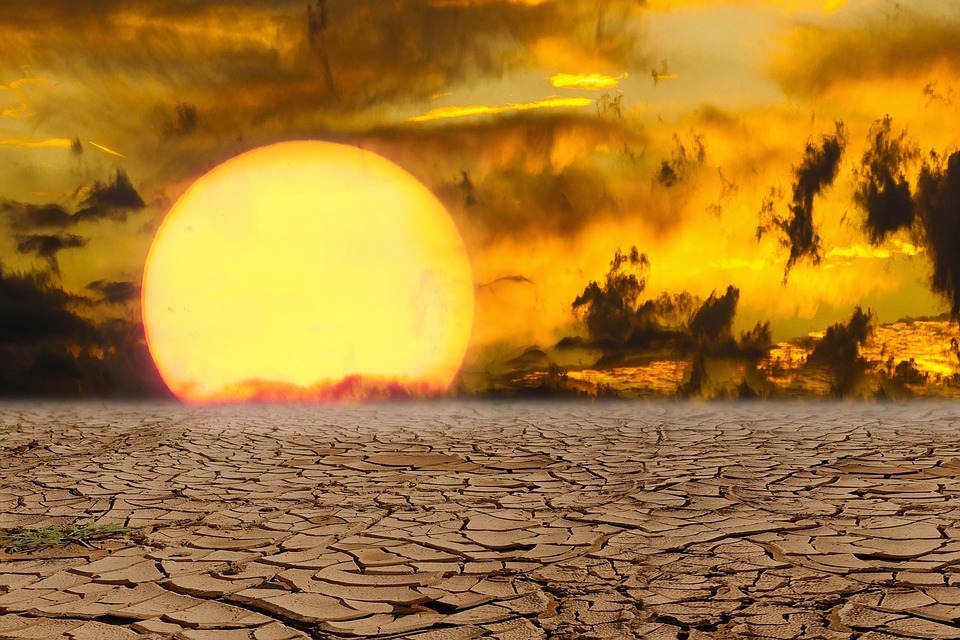Climate Change definitely does not inspire the same emotions in all of us. Media, schools, friends, family; they all parts of our lives that influence the way we feel about this issue. And depending on the social circles you find yourself in, some very different ideas of the current state of affairs are painted for you. But for the most part, it would seem people do generally get the sense that our environmental situation is fairly doom and gloom. In fact, its bordering on armaggedon. People are scared and rightly so. On the 6th of Feb, the UK’s Met Office shows 2018 as the “fourth warmest year on record” in 169 years of recording. Now, compared to pre-industrial levels, global surface temperatures are forecasted to be 1.0 °C warmer. The question is, what impact does the way we talk about these issues impact how people act with regards to climate change?
The consequences of the “truth” can go one of two ways. It can either leave people discouraged and despondant or cultivate motivation for action and for change. We definitely need action. We most certainly need change. And even more so, we need everyone to be a part of it. So does the apocolypse style angle really work for all? I can’t answer that but it will for some. Then again, what works for one will undoubtedly not work for the next.
What has been truly fascinating are the red flag warnings urging government and people to act, which in recent times, has been on the rise. There has been the 15 year old Swedish Climate Activist, Greta Thunberg’s popular call-to-arms speeches in which she’s alarmed people “our house (the world) is on fire” and “I want you to panic”. And not to forget David Wallace-Wells’ apocolyptic style writings of our environmental and social catastrophe where he believes “people should be scared – I’m scared”.
Again, I couldn’t tell you if this is the right approach but nonetheless its an angle thats becoming increasingly popular. Arguably a polar opposite stance to David Attenborough who has publicly stated his intent to downplay the seriousness of the pressures affecting wildlife in his recent series, Dynasties. A more gentle approach as he strives to not saturate people’s minds with negativity but allow room for optimism. Not all agree. Guardian journalist, George Monbiot was quick to criticise arguing that Attenborough has “creat[ed] a false impression of the world”, “frustrated… environmental action” and “cultivat[ed] complaceny”.
Monbiot firmly values the importance of framing the absolute truth, no matter the discomfort it inspires. The way we discuss climate change may not solve our plastic pollutions or our oceans collapse. Its not like to end the mass extinction of our natural world or reverse the constantly increasing economic disparities, but it will impact the way people, communities, nations decide to act.
When the science tells us that there isn’t much time, when the news lists all the problems plauging our world, when the writers project a future of gloom, how do you feel? Do you want to act?
Reference Material (worth the read/watch)
George Monbiot, 2019. “David Attenborough has betrayed the living world he loves”. Available at: https://www.theguardian.com/commentisfree/2018/nov/07/david-attenborough-world-environment-bbc-films
Greta Thunberg, 2019. “Our House is on Fire” Speech at the World Economic Forum (WEF) in Davos. Available at: https://www.youtube.com/watch?v=zrF1THd4bUM
Jonathon Watts, 2019. “David Wallace-Wells on climate: ‘People should be scared – I’m scared’”. Available at: https://www.theguardian.com/environment/2019/feb/03/david-wallace-wells-on-climate-people-should-be-scared-im-scared?CMP=Share_AndroidApp_Messenger&fbclid=IwAR1avE9ROmWZt3mMeu2wm4_UwSpLwE2qc-9qTpP30STReguVAJ3-yyidViQ
The UK Met Office, 2019. “Forecast suggests Earth’s warmest period on record”. Available at: https://www.metoffice.gov.uk/news/releases/2019/forecast-suggests-earths-warmest-period.


